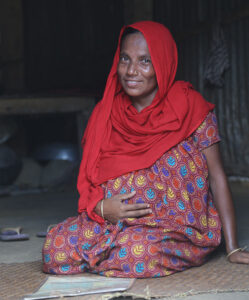 Parents all across the globe tend to admit that the biggest, most precious achievement of their lives has been the birth of their children. Parents start dreaming about the birth and upbringing of their child as soon as they find out they are expecting. Ensuring the mother and the baby remains happy and healthy while coming into the world is quite a task for the expectant parents and people around them. The joyous, yet worrisome task has become a lot more challenging in 2020 – when the coronavirus 2019 (COVID-19) brought the world down as a global pandemic.
Parents all across the globe tend to admit that the biggest, most precious achievement of their lives has been the birth of their children. Parents start dreaming about the birth and upbringing of their child as soon as they find out they are expecting. Ensuring the mother and the baby remains happy and healthy while coming into the world is quite a task for the expectant parents and people around them. The joyous, yet worrisome task has become a lot more challenging in 2020 – when the coronavirus 2019 (COVID-19) brought the world down as a global pandemic.
To help stop the spread of the virus, many countries imposed lockdown that caused many, especially those with irregular income sources, to lose their jobs and are barely meeting their basic needs. In rural Bangladesh, here is what an expecting parent is going through with the ongoing situation: “My husband is a day laborer with no work or income these days. My mother in law begs door-to-door and barely makes money during this pandemic. We hardly get enough food to feed my two other children. How can I expect to have nutritious food during this time?” questioned Kulsum from Phulbari, Kurigram, a mother of two, who is expecting a third baby in a month. The income crisis has not only affected the consumption of nutritional food, but it has also affected other decisions, including medical expenses. Overall panic among people regarding the infection is also causing a drop in seeking medical assistance among pregnant women.
To detect the early signs of complications, pregnant women are encouraged to visit the doctor at least four times in between conceiving and delivering the baby – something Bangladeshi women from the poorer segment were reluctant to follow even on the normal days. During this pandemic, where the government is largely asking people to stay home, and health care providers and patients alike are more and more intimidated to visit facilities where many sick people gather – the numbers have dropped further. “Doctors of the Community Clinic discouraged us from visiting the clinic as more people are afraid of catching the coronavirus.” says Suma, an eight months’ expectant mother from Mithamoin, Kishoreganj. She used to visit the clinic every month.
Aside from the risk of exposure to the disease just by stepping out of their homes, lack of transportation is another factor that is forcing people to abandon their plans to pay a visit to the clinics. Angura, another expectant mother from Nageswari, Kurigram said, “The hospital is not close to my home. We have to cross the river and pass a long sandy field to reach the Upazila Health Complex, these days the vehicles are not available. I had my check-up done by the local NGO’s health worker and the growth monitoring promoter in the village to monitor my weight.” She further shared, “Due to financial crisis, we are consuming cheap vegetables. Although I have no complications yet, but I am worried about any challenge that I may face and how difficult it is to visit the doctor now. I am still worried about giving birth to my child next month and my nutritional needs after the delivery.”
New mothers with young babies are also refraining from visiting the doctor, therefore are not receiving the much needed post-natal care. “My six months old baby had fever a few days back but now he is fine. The community clinic is far from here so we don’t go there unless it’s a serious issue. I haven’t taken any treatment after the delivery of my child but I am doing okay so far,” says 19-year-old new mother Shahinur, from Chowhali, Sirajganj.
Written by Iffat Khan, Knowledge Management Coordinator of SHOUHARDO III, CARE Bangladesh.


